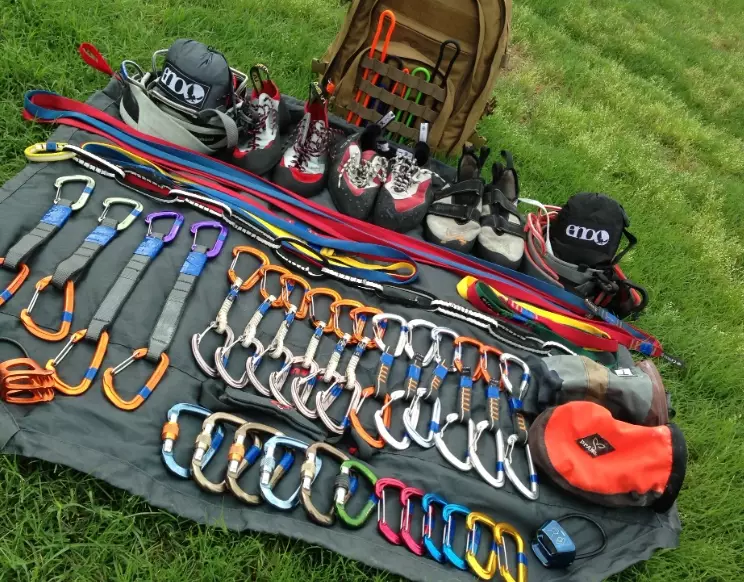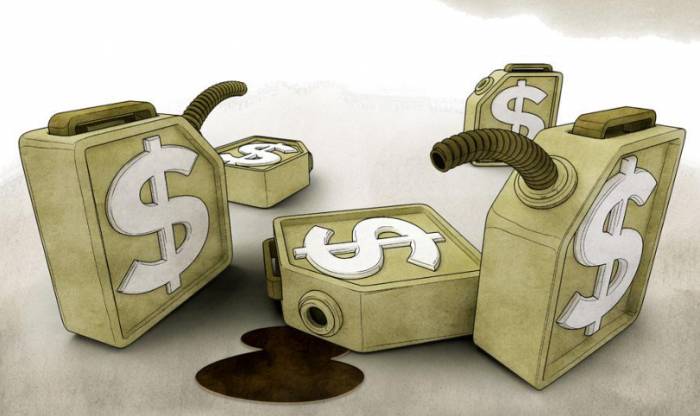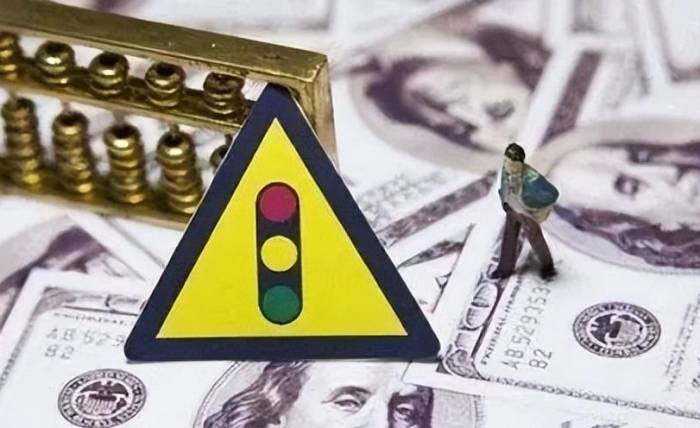This article is written for those friends who are very passionate and sincere about trading. Recently, a graduate student who is still studying asked me if he could give up his studies and go directly into full-time trading since he already has a profitable trading strategy.
Many friends often ask me similar questions, inquiring how they can make a living from trading. Whenever I answer such questions, I would first fall silent for a moment because I am unsure whether I should encourage this behavior or dissuade it.
Over a decade ago, I experienced the fervor of trading, the hellish phase of trading, and finally, the calm phase, deeply feeling the cruelty and difficulty within trading.
However, I also understand that everyone has their own passions, and I cannot decide others' lives with my own subjective thinking.
So today, in this article, I will first talk about my own trading experiences, the periods I went through, and my feelings. In the latter half of the article, I will also discuss what conditions are needed to make a living from trading, and how to determine whether one truly loves it or is just momentarily excited.
I believe this article can provide some inspiration for you who are currently trading. You can also use it to judge whether you truly possess the conditions for full-time trading, which can greatly help you avoid some risks.
1. How did I become a full-time trader?
In my 20s, I went to Conakry, Africa, to do business, and it wasn't until I was around 30 years old that I was forced to return to my home country due to some political reasons there.
At that time, I had saved some money and was in a very spirited state. But unlike others, when I returned home, I had no resources, no connections, and no special skills. My years of accumulation were all abroad, and I had nothing left except a little savings, which led to extreme confusion about my future.
It was at this time that I happened to meet an older brother who was dealing in gold, and that's when my journey into trading began.At that time, I had no job, and the only path laid out before me was this one, which I had no choice but to take. Coincidentally, this industry required a certain amount of capital. Having endured enough hardship in Africa, I thought that being able to generate money from money, and being able to earn money by just moving my fingers at home, was such a divine thing! This is what led me into full-time trading.
However, it is difficult for people to earn money beyond their own cognition.
Like many others, my understanding of the trading market was quite superficial, and I started with beginner's luck, making profits in a muddled way, and the amounts were not small.
For a novice in trading who has not yet stumbled, this is nothing but a devil's gift. It's like entering a casino and being allowed to win from the start, which is the only way you might stay. Casinos have a saying: they are not afraid of you winning money, they are afraid of you not gambling, and it's the same principle.
Later, after tasting some sweetness from trading, many of my long-time followers have seen my experience and know that I suffered heavy losses later on.
Moreover, in trading, the market will not always let you go downhill; it will definitely pull you back and forth, making you lose a little, then let you earn a little, in a cycle of repetition.
At this time, your mentality will be infinitely stretched until it explodes, and you start to make all sorts of trading mistakes. The original trading strategy is no longer followed, you are stuck without stopping losses, and you trade frequently without a plan, doing anything and everything results in a loss.
Then, when the market shows a little improvement, you start to get cocky again, thinking you still have the ability, with a strong mentality of luck, and becoming more and more perfectionistic, wanting to make the trading system perfect, wanting to capture more profits.
Until finally, after more than a year, I lost all my savings and was forced to stop trading.
At that time, I had no other source of income, so I was even more afraid when I lost money, and I was more unwilling to accept the loss. I often dreamed of my hard days in Africa, and when I woke up from the dream, I wanted even more to earn it back through trading.So, this is why I always advise every trader who can speak up to have a proper job, a source of income. It not only gives you a way out but also allows you to trade more calmly and less likely to make mistakes under pressure. This is because I have experienced it myself, and I don't want you to go through the same.
Every self-taught full-time trader has similar experiences, which is determined by the nature of this profession: high risk, low success rate, and the only advantage is the potential for great upward mobility, but it also comes with the possibility of having to bear extreme pain.
2. What conditions are needed to make a living from trading?
The first condition is definitely an economic foundation.
I often see such inquiries, can a principal of 20,000 dollars be used for full-time trading? My answer is always a firm "no."
Because we are all human beings who need to live and have expenses. Suppose your annual expenses are 100,000 dollars, then with a principal of 20,000 dollars, you would need to make a profit of 500% per year, and it has to be a stable doubling, which is basically impossible.
Moreover, there is a clear rule here: it is easier to make the same amount of money with a larger capital than with a smaller one.
For example, if you want to make 100,000 dollars, and your principal is 20,000 dollars, you would need to multiply it by 5. If your principal is 1 million dollars, you only need to make a 10% profit. These two scenarios involve completely different levels of difficulty and mental states.
Similarly, if you trade with half of your capital, a half position of 1 million dollars can do 10 contracts, while a half position of 100,000 dollars can only do 1 contract. A 1 million dollar account only needs a small fluctuation to make 100,000 dollars, whereas a 100,000 dollar account would require a much longer holding period. The difficulty level between these two is further widened.
So, it is not difficult to reach the passing mark, but it is the most challenging to go from 60 points to 100 points. It requires you to be extremely cautious and make no mistakes, because even a small error could lead to a total loss.So if you want to become a full-time trader, you can amplify your principal capital a bit and lower your profit expectations, which will make trading easier.
A genius top student might come along once in a million, but someone who can just meet the passing mark might be one in every ten. We must acknowledge our mediocrity and earn the money we can realistically earn.
As for how much capital you need, I suggest you calculate it based on your daily expenses. For example, if your annual expenses are 200,000, and you conservatively estimate a stable 10% annual return, you would need a principal of 2 million for the year.
My own trading system averages about 30% to 40% returns per year, but in a bad year, it can also reach 10%, so we'll calculate based on the lowest year for a more secure and prudent approach.
The second condition must be trading skills.
Many people ask me, can't I rely on a sense of the market if I don't have trading skills?
If you're trading part-time and making money based on this so-called market sense, that's your ability, and it's fine. But once you're trading full-time, can this elusive sense of the market bring you a stable income?
The biggest difference between part-time and full-time trading is that part-time can be more casual, while full-time must strive for stability because you're relying on it for your livelihood.
What can truly stabilize the outcome of trading is trading skills.
At this point, some friends may fall into the trap of recent preference, such as when someone's trading system has been profitable for three months, they start thinking about quitting their job to trade full-time. At this time, you actually don't know if you have the ability to make profits in the long term. Once you quit, you'll lose all sense of security, and your confidence in trading might not have been established before it's already gone.If luck is not on your side, you might immediately enter a phase of losses after going full-time. Under pressure, trading becomes more prone to going awry, which can lead to a vicious cycle of losses.
Therefore, what we pursue is not just trading skills, but stable and long-lasting trading techniques.
So, what exactly should we do?
There is a book called "Peak: Secrets from the New Science of Expertise," which offers some insights that are well worth our consideration.
(1) Do not blindly believe in talent; potential is not something that is unearthed, but rather developed, nurtured, and created.
(2) Each practice session is a series of intellectual activities that include practice, reflection, summarization, and optimization for improvement.
(3) Every deliberate practice is a step outside of your comfort zone. Don't go too far and exhaust yourself, but also don't stop; keep moving forward, making steady progress, and never halt your steps.
For two whole years after my trading failures, I did not touch a live account. The only thing I did was to review past trades and engage in simulated trading.
I pulled out my old trading records and listed all the issues I encountered in every trade, reviewing them daily.
I didn't start by fantasizing about how much money my trading system could make; instead, I began by establishing a rough framework. Then I put this framework into a backtesting software and a simulated trading environment to test it, making small adjustments along the way. I gradually improved it from a negative return rate to breaking even, then to making a profit, and finally to earning more money, slowly testing my own profit potential.Then, I combine the data from the simulated trading platform with the trading mistakes I have made in the past to see how my trading system performs in the simulated environment. I check if it makes too many consecutive errors, if the drawdown is too severe, and if there are risks during extreme market conditions, etc., trying to avoid repeating the same mistakes I've made before.
From the beginning, where I was determined not to make any mistakes, to allowing a margin for error; from never accepting losses to later allowing for them, giving myself some room to breathe and aiming for a satisfactory 60 points.
Gradually, the path of trading became clearer, profits became more stable, and my mindset improved.
Eventually, my relationship with my trading system became like that of old friends who have been together for years. I have great faith in its profitability, and even if there is a period of losses, I don't worry because I know it will eventually make up for it. I don't demand too much from it, and it doesn't put too much pressure on me, making us the most comfortable partners.
This has also become the confidence for me to make a living from trading.
3. How to determine if you truly love trading or if it's just a fleeting infatuation?
In the eyes of most people, making a living from trading signifies wealth and a leisurely, comfortable life. It seems that you can easily make money by just moving the keyboard in front of the computer, much more comfortable than working hard.
In fact, sometimes we need to look beyond the surface to see the essence of the issue: do you love trading or the money it brings? Do you love trading or the thrill it gives you?
Full-time trading is like being in a relationship. Before getting together, you think the other person is perfect in every way, but after being together, you discover a multitude of flaws. If you get married without fully understanding each other while infatuated, it will lead to a mess.
In reality, trading is not easy, and money is not made by simply clicking the mouse. In trading, we may experience mental torment, the helplessness of missing out, the disappointment in ourselves after making mistakes, and the daily emotional rollercoaster. If you become a full-time trader, these emotions will be amplified many times over.Before trading reaches a stable state, it must go through a tedious and complex period of testing and adjustment. Once stability is achieved, the daily operations become repetitive and laborious. In fact, trading is an extremely monotonous endeavor, a sentiment shared by many seasoned traders.
In reality, the grander the vision, the greater the difficulty in implementation. Only a true passion for trading can overcome these challenges and torments. How can you determine if your love for trading is genuine and not just a fleeting infatuation? I believe there are two key points to consider:
(1) How patient are you during the monotonous process of technical learning?
You can refer to a picture, which is part of my early notes on learning to trade, amounting to about a dozen stacks this thick.
Most people are self-taught in trading, and it takes a long period to sift through the vast amount of information, learn the useful content, and transform it into trading skills.
Moreover, many technical books are dry and may require multiple readings to understand, necessitating note-taking and summarization.
If you do not find this process tedious, and can persist, even feeling excited and delighted because you are learning more and getting closer to a comprehensive understanding of trading, then your passion for trading might be genuine.
If you cannot even finish reading a technical book, feeling overwhelmed just by looking at it, then you are likely attracted to the thrill of trading rather than the act of trading itself.
(2) When encountering problems in trading, do you just want to know the conclusion, or do you want to know the reasons why?Many people are impatient on the path of trading, wishing that someone could just give them the answers so they wouldn't have to search and think for themselves.
For instance, someone might ask me, "Should I choose the lowest point or the second-lowest point for setting a stop loss?" At this point, I would first tell them the answer to this question and explain why it is so, and how they should go about verifying this perspective.
Then, after some time has passed, they might come back to ask me the same question. This is because they haven't verified it themselves, and answers heard from others are not fully trusted.
Others might ask me, "Is the moving average better or is naked K better?" I would tell them, "You can test the same trading strategy with these two indicators separately and see their effectiveness for yourself."
Then they would ask me, "Why can't you just tell me the answer directly? Are you pretending to be something you're not?"
At this point, I would feel quite helpless because if you give an answer, others don't believe it; if you don't, they think you're showing off. It's a no-win situation.
Learning to verify your own ideas in trading is a necessary journey. Only by truly engaging with the process can you truly understand and believe.
Only those who truly love trading will have the patience to learn, think, summarize, and continuously correct themselves. This is something that others cannot give you; it can only come from within.
So if you're just looking to make money and think that full-time trading can make a lot of money, don't start at all. You're not passionate about trading; you're just impulsive.
If you can't settle down to learn and endure the tedium and loneliness in trading, then you're not passionate about trading; you're just holding onto a beautiful illusion of it.Finally, let me add one more thing: I used to trade full-time because I had no other choice, but when you have options, don't easily put yourself in a situation with no way out.






























Comments